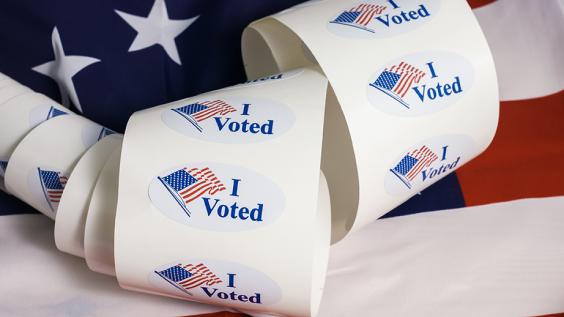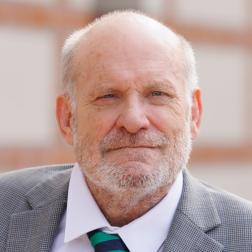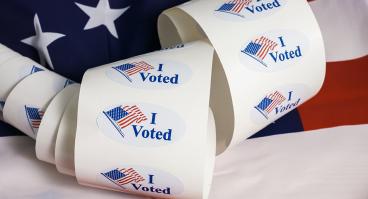Foreign Policy and the Presidential Election: The Fall Campaign

Table of Contents
Author(s)
This blog is the final post in a four-part series analyzing the role of foreign policy in the 2016 presidential election.
Now that Donald Trump has all but secured the Republican nomination, he will no doubt start pivoting toward the fall campaign against Hillary Clinton. He seems to have made substantial — if not total — progress in unifying the party around him. There is still talk among some disaffected Republicans of launching a third-party bid. But such talk grows weaker by the day. There will be hold-outs. Chief among them will be neoconservative intellectuals who mistrust Trump on foreign policy. Some will endorse Clinton, whose muscular liberal interventionism is far more closely aligned with their views; others will simply sit it out. What impact these defections will have on the general election is hard to gauge but will likely be minor; while neoconservatives may loom large in the Republican foreign policy establishment, their sway with the broader electorate is another matter. The election almost certainly will be won or lost on issues other than Trump’s refusal to hew to neoconservative orthodoxy on foreign policy.
Once Trump has made peace — if only through the election — with most of the Republican establishment, we can expect some effort to “tame” him, i.e., make him seem more presidential. We may see more formal speeches on various issues, including foreign policy. But whether Trump is “tamable” is another question altogether. It is hard to imagine an individual like Trump — who clearly revels in the public persona he has cultivated for decades — making more than token gestures toward transforming himself into a conventional candidate. Moreover, it’s far from clear how much good such a transformation would do him. After all, largely conventional candidates — John McCain and Mitt Romney — were defeated in 2008 and 2012. And it was precisely Trump’s refusal to play by the rules that catapulted him to the top of the Republican field this year. Why would Trump now mimic those candidates — notably Jeb Bush and Marco Rubio — whom he dispatched in the primary?
The fall line-up will give voters a clear choice, even if it is not one many voters care for (both Trump and Clinton are unpopular). Clinton is a conventional Democrat with a long track record in both domestic and foreign policy. Whatever one’s view of her, Clinton is very much a known quantity. Her views on foreign policy closely track with those of President Barack Obama. This is hardly surprising, since she served as his secretary of state for four years. There are differences, however: Clinton is generally more hawkish — i.e., more inclined to use military force — than Obama. As senator, she supported the Iraq War; while secretary of state, she was a staunch supporter of the intervention in Libya; and she apparently advocated greater support for the Syrian opposition. Since leaving office, she has implicitly criticized Obama’s foreign policy in general terms and broken with it by calling for a “no-fly zone” in Syria. But we can expect no great surprises in Clinton’s approach to foreign policy during the campaign. She will attack Trump on his lack of experience in foreign policy, his judgment when it comes to matters such as handling U.S.-Mexico and U.S.-NATO relations, and, not least, his overall character, which her campaign will no doubt depict as erratic and irresponsible.
Trump is another matter altogether. Unlike Clinton, he has no long and extensive track record on foreign policy; he is anything but conventional; and he remains very much an unknown quantity. We can expect him to assail Clinton on Obama’s foreign policy record for its failure to destroy ISIS and protect the United States from terrorist attacks. He will also pillory Clinton on trade, one of Trump’s signature issues. Here, Clinton has insulated herself somewhat by reversing her earlier support for the Trans-Pacific Partnership trade agreement now awaiting congressional action. Still, we can expect Trump to raise NAFTA, signed by Clinton’s husband, and Clinton’s own support for the U.S.-South Korean trade agreement.
The importance of foreign policy in the fall campaign will depend very much on developing events in the Middle East and elsewhere. A dramatic shift in the tide of battle in either Syria or Iraq is a case in point. An ugly turn of events in Ukraine also could shake the campaign, as could an uptick in Sino-American tensions over the South China Sea. The possibilities are endless: the world, after all, is a large, dangerous and unpredictable place.
One possible event, however, merits special attention: a major terrorist attack by an extremist Muslim group or individuals in Western Europe or, particularly, the United States. (A terrorist attack in the Middle East is unlikely to have such an effect. If the past is any guide, the U.S. public pays much more attention to attacks in Brussels, say, than in Baghdad. This is perhaps unfair. It is, however, a fact.) Trump seized on the Paris and San Bernadino attacks last year to call for a temporary ban on Muslims entering the United States. Should another such attack occur, Trump will no doubt claim justification for his controversial position and use it for a further attack on Obama’s — and by extension, Clinton’s — purported unwillingness to confront terrorism. How such a turn of events would ultimately play out in political terms is unclear. A terrorist attack might actually bolster Clinton, if she appears the calmer, more presidential figure in a crisis. Nonetheless, the public alarm and press frenzy surrounding any major terrorist attack would probably redound to Trump’s advantage. Despite Trump’s recent uptick in polling against Clinton, he surely faces an uphill battle for the White House. Like McCain and Romney before him, he must contend with formidable demographic headwinds, especially the rising share of non-white voters. The electoral map appears to give Clinton or, indeed, any Democrat, a substantial advantage, compelling Trump to pick up the equivalent of an “inside straight” in the Electoral College in order to win the presidency. Any foreign policy crisis, therefore, can potentially allow Trump to shake up the race and do what he does best: make the news.
Joe Barnes is the Bonner Means Baker Fellow at the Baker Institute. From 1979 to 1993, he was a career diplomat with the U.S. State Department, serving in Europe, Africa, the Middle East and South Asia.
This material may be quoted or reproduced without prior permission, provided appropriate credit is given to the author and Rice University’s Baker Institute for Public Policy. The views expressed herein are those of the individual author(s), and do not necessarily represent the views of Rice University’s Baker Institute for Public Policy.

